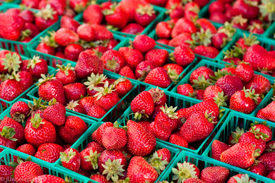Your opinion on fruitarianism.
Replies
-
That's true. Lack of tacos would definitely be something I would worry more about. Me loves tacos.yopeeps025 wrote: »
My friends was telling me of a 3000 calorie all fruit diet he did.
1) expensive to get that many fruits in one day.
2) he said there was some intimate issues he had with some girl at that time. could of been something else but he had no fats in his body. So I will go with the crap diet doing that.
I stop him right there and say why are you telling me about this diet than. His answer you will loss the weight and he clearly means muscle since he was only getting 50-60 grams of protein per day.0 -
hortensehildegarde wrote: »gabrielleelliott90 wrote: »
wait. you mean those 2 are serious? Those videos aren't just a joke?
Yes, they are very serious......... About making money from Youtube.
0 -
I'm a fruitarian. I eat only fruit, nothing else and I feel pretty good! More energy, better digestion, improved dental health and weight loss (10 kg in 6 weeks to be exact).

Well, you've been doing it only for 6 weeks...
Let's talk again in 3 years and see how your teeth are doing then.
Good luck!
0 -
Being fruititarian is part of what killed Jobs, at least according to some popular theories. That and his holistic approach to his cancer. He had pancreatic cancer but he had the one very treatable form. Instead of surgery/chemo he opted to go to try different exclusionary diets and seek holistic treatments. He eventually sought treatment but it was far too late.
After realizing his folly, he later sought treatment and later required a liver transplant which he received by basically buying his way onto the top of a donor list for a liver.
http://www.cnn.com/2009/HEALTH/06/24/liver.transplant.priority.lists/index.html?iref=24hours
"In October 2003, Jobs was diagnosed with cancer, and in mid-2004, he announced to his employees that he had a cancerous tumor in his pancreas. The prognosis for pancreatic cancer is usually very poor; Jobs stated that he had a rare, far less aggressive type known as islet cell neuroendocrine tumor.[215] Despite his diagnosis, Jobs resisted his doctors' recommendations for medical intervention for nine months, instead consuming a pseudo-medicine diet in an attempt to thwart the disease."
"Barrie R. Cassileth, the chief of Memorial Sloan–Kettering Cancer Center's integrative medicine department, said "Jobs’s faith in alternative medicine likely cost him his life.... He had the only kind of pancreatic cancer that is treatable and curable.... He essentially committed suicide." According to Jobs's biographer, Walter Isaacson, "for nine months he refused to undergo surgery for his pancreatic cancer – a decision he later regretted as his health declined." "Instead, he tried a vegan diet, acupuncture, herbal remedies, and other treatments he found online, and even consulted a psychic. He was also influenced by a doctor who ran a clinic that advised juice fasts, bowel cleansings and other unproven approaches, before finally having surgery in July 2004."
http://en.wikipedia.org/wiki/Steve_Jobs
In regards to fruititarianism.
"Fruits and fruit juices are not only high on the glycemic index, but loaded with fructose. In all but small quantities, they greatly stress the liver and pancreas, contribute to diabetes and many other blood sugar disorders, and have been linked to pancreatic cancer. Jobs suffered from a type of pancreatic cancer known as islet cell carcinoma, which originates in the insulin-secreting beta cells.
That the fructose in Jobs’s fruit heavy diet likely contributed to this cancer is supported by research published in the November 2007 issue of American Journal of Clinical Nutrition which concluded there was “evidence for a greater pancreatic cancer risk with a high intake of fruit and juices but not with a high intake of sodas.” In other words, the “healthy” juices regularly drunk by Jobs may have been been even worse than the soft drinks he seems to have rejected."
http://www.westonaprice.org/blogs/kdaniel/veganthink-dr-john-mcdougall-explains-the-death-of-steve-jobs/
The article isn't advocating soda, of course, but it is suggesting a strict fruit only diet is in fact more detrimental than consuming sodas in a less extreme diet.
It's rather tragic really. Pure fruitiarian diets are continually being found to be unhealthy.
0 -
There used to be a website called 30bananasadaysucks where ex-fruitarians talked about all the brainwashing Freelee and Durianrider did and all the side-effects of the diet. It was known that those 2 gurus deleted all posts on their forum that was going against their diet. The 30 bananasadaysucks site was hacked and deleted because those 2 nutjobs couldn't handle the truth out there.0
-
jennifershoo wrote: »There used to be a website called 30bananasadaysucks where ex-fruitarians talked about all the brainwashing Freelee and Durianrider did and all the side-effects of the diet. It was known that those 2 gurus deleted all posts on their forum that was going against their diet. The 30 bananasadaysucks site was hacked and deleted because those 2 nutjobs couldn't handle the truth out there.
Let me tell you, as a person with a maintenance of 1830 (barring exercise), the side effect of 30 bananas a day would be fat. I would get fat.
Insane. I wish I'd seen that website, sounds like a good place to munch popcorn.0 -
In moderation, I like my food - many different kinds, from different countries. Fruit is wonderful but I couldn't live on it alone & don't even want to try!
 0
0 -
I find those articles on Jobs fascinating and terrifying. Extremes never work! I did all this stuff when I was a youngster. God, the things I've put my body through. Amazingly it just keeps healing itself.0
-
yopeeps025 wrote: »
I would never stop pooping.0 -
This content has been removed.
-
It's dangerous. And stupid.0
-
PlaydohPants wrote: »jennifershoo wrote: »There used to be a website called 30bananasadaysucks where ex-fruitarians talked about all the brainwashing Freelee and Durianrider did and all the side-effects of the diet. It was known that those 2 gurus deleted all posts on their forum that was going against their diet. The 30 bananasadaysucks site was hacked and deleted because those 2 nutjobs couldn't handle the truth out there.
I read that once. Many people who actually met those two at festivals said neither of barely ate the whole week, let alone 30 bananas a day. They'll eat a tonne of fruit for youtube video but they aren't actually following their own "lifestyle".
I'm no rocket scientist, but anyone who needs a website and/or a week-long face-to-face to realize the whole thing is bunk has to be a couple sandwiches short of a picnic. If FruitGirl were really smart she'd be selling those attendance lists to Nigerian scammers.0 -
obscuremusicreference wrote: »jennifershoo wrote: »There used to be a website called 30bananasadaysucks where ex-fruitarians talked about all the brainwashing Freelee and Durianrider did and all the side-effects of the diet. It was known that those 2 gurus deleted all posts on their forum that was going against their diet. The 30 bananasadaysucks site was hacked and deleted because those 2 nutjobs couldn't handle the truth out there.
Let me tell you, as a person with a maintenance of 1830 (barring exercise), the side effect of 30 bananas a day would be fat. I would get fat.
Insane. I wish I'd seen that website, sounds like a good place to munch popcorn.
Yes. I gained weight, and I was always hungry, an cold, even with roughly 3000 calories a day. And I was errrr, really, really cleaned out.0 -
Laurend224 wrote: »obscuremusicreference wrote: »jennifershoo wrote: »There used to be a website called 30bananasadaysucks where ex-fruitarians talked about all the brainwashing Freelee and Durianrider did and all the side-effects of the diet. It was known that those 2 gurus deleted all posts on their forum that was going against their diet. The 30 bananasadaysucks site was hacked and deleted because those 2 nutjobs couldn't handle the truth out there.
Let me tell you, as a person with a maintenance of 1830 (barring exercise), the side effect of 30 bananas a day would be fat. I would get fat.
Insane. I wish I'd seen that website, sounds like a good place to munch popcorn.
Yes. I gained weight, and I was always hungry, an cold, even with roughly 3000 calories a day. And I was errrr, really, really cleaned out.
I would be so mad if I went on a diet and gained! Especially with the constant hunger (what? Food that only has 1 g/protein leaves you hungry? What were these freelee-types thinking when they made up this diet?)0 -
PlaydohPants wrote: »jennifershoo wrote: »There used to be a website called 30bananasadaysucks where ex-fruitarians talked about all the brainwashing Freelee and Durianrider did and all the side-effects of the diet. It was known that those 2 gurus deleted all posts on their forum that was going against their diet. The 30 bananasadaysucks site was hacked and deleted because those 2 nutjobs couldn't handle the truth out there.
I read that once. Many people who actually met those two at festivals said neither of barely ate the whole week, let alone 30 bananas a day. They'll eat a tonne of fruit for youtube video but they aren't actually following their own "lifestyle".
Exactly. Also, they exercise all the time (biking), so they end up burning those calories.
0 -
I sampled it while also sampling raw veganism a few years back. I don't do either any more. I won't bash it, but I will say it's not for me and I would never recommend it if anyone asked about it.
I never went as far as "sungazing" though. Or fasting for that matter.0 -
What does this really mean?
If you are someone like Freelee (not supporting her here, hold on) that eats with a TDEE of 3000/4000+ calories and has 10-15% protein sources - and supplements with shots (which she and her partner apparently do) then it's an excessive lifestyle but not totally unsound. 15% of 3000 cals is the same protein as 30% of 1500 - like so many people here practice.
Unfortunately, what they sell - eat as much fruit as you like, whateva! IS totally unsound. Their pseudo science justification is dangerous. They are deeply wrong on the most basic explanations that they offer. They have done real damage to some people and their dietary practices are often dangerous.
Take a look at the movement to get her banned:
https://www.change.org/p/youtube-terminate-freelee-the-banana-girl-and-durianrider-s-multiple-youtube-accounts-and-internet-sites-and-ban-them-for-life
However, in a diet were base protein needs are met for someone extremely active her lifestyle was healthier for her than being overweight. So we should consider that before we judge from our [fat] pedestals...
For 99% of the population it would be stupid - personal context matters.
The raw movement is something I cannot really support as best practice BUT it does get people to move towards a more active and more nutrient focused life. It isn't without some merit. Again context.
0 -
gabrielleelliott90 wrote: »
Isn't Freelee the banana girl the one who made a whole video basically fat shaming Jenna Marbles because Jenna gave up eating vegan?
0 -
Who cares?0
-
This content has been removed.
-
gabrielleelliott90 wrote: »
Isn't Freelee the banana girl the one who made a whole video basically fat shaming Jenna Marbles because Jenna gave up eating vegan?
I heard something like that, but I don't think I've seen the video.
If anyone can link it I'd appreciate that0 -
gabrielleelliott90 wrote: »
Isn't Freelee the banana girl the one who made a whole video basically fat shaming Jenna Marbles because Jenna gave up eating vegan?
I heard something like that, but I don't think I've seen the video.
If anyone can link it I'd appreciate that
http://bit.ly/1uTzWJJ (it's a couple of links down)
0 -
-
This is a thing? People actually do this? Oh wait I forgot, this is the Internet where you find out there really are all kinds of idiots out there...0
-
I watched the video. I'm sorry, I just can't take Freelee seriously, especially at the part where she said something about animal products being full of fats, as if that's -definitely- a bad thing. Nothing wrong with fat imo, especially for feeling satisfied. And when she referred to her lifestyle as "the good side" I got sad.
She also said "absofruitly"0 -
gabrielleelliott90 wrote: »Personally, I think it is very silly indeed. I don't think it is sustainable. That much fructose is not good for anyone....
It is sustainable for some people (there have been multiple examples listed in this thread) but fructose is not the major problem. Vitamin B12 deficiency for example is a much bigger issue. If there is something to fear it is the impact of minimal protein and fat consumption not sugar.
I personally love fruit and have gone a few days at a time consuming only that (dates, bananas and strawberries mainly). However I also love bacon and steak so my fruitarian adventures never last more than a day or two.0 -
It sounds a little fruity to me. Heh.
Yeah, those two banana people are pretty annoying. Freelee actually said in one of her videos that if you're a woman, you're not healthy unless you have a thigh gap. Basically she was like, "This is what a healthy female body is supposed to look like," referring to her thigh gap. (And why exactly is it that only women and not men are "supposed" to have a thigh gap?) They're both very arrogant and see themselves as superior to others, and they're often not very well informed. In one video Durian says that it's perfectly healthy to drink Coke because it's vegan, and that the high fructose corn syrup in it is fine (because "sugar is good for you"), and the only reason why he doesn't drink it is because the acid in it is bad for your teeth. Of course it's fine to have whatever you want in moderation, but saying "It's healthy because it's vegan!!!" is a gross oversimplification that displays an extreme lack of anything resembling intelligence.0 -
ridiculous0
-
Fruitarianism: Pro
* fruit is widely regarded as the best tasting raw food, and eating fruit is very pleasant indeed - after all, we all like sugar! :-)
* it is a very cleansing diet, and may be helpful (in the short run) against diseases/disorders where physical toxemia is a factor (note: this applies to other raw foods diets as well; the point is that fruitarianism is probably the most cleansing diet)
* fruit, if it is grown locally and not shipped, refrigerated, fumigated, subjected to heat/cold treatment to kill fruit flies, etc., is a low violence food. However, shipping fruit, refrigerating it, etc. do involve violence to the environment; fruit subjected to such treatment cannot be considered a low violence food. In other words, most fruit is neither violence-free nor karma- free.
* promotes weight loss and gives you a light body
* fruitarianism alters your mental state, promoting a light and airy mental feeling that some find quite pleasant. Some interpret this as a "spiritual" feeling.
* can promote extraordinary physical health - you *appear* to be (relatively) immune to illness (at least in the short run), and injuries heal very quickly. This, combined with the "light" mental effect, makes it *appear* that you are experiencing a higher state of living.
* your respiratory system may function better than on other (cooked) diets, though only slightly better (or same) as other raw diets
* it can sharpen your senses to an extraordinary degree, especially the senses of taste and smell. Your sense of smell may get so sharp that it is emotionally painful to sit in the same room with someone who is a garlic eater, or one who smells of tobacco (you simply can't stand the stench).
* reduces the amount of water you need to drink (as fruit is high in water)
Fruitarianism: Con
* modern fruit is expensive, lacking in vitality and quality as a result of shipping, refrigeration, fumigation, etc. The importance of year-round access to good quality local fruit limits the applicability of fruitarianism.
* fruitarians usually experience severe weight loss, with weight stabilizing at anorexic levels. It is extremely difficult to gain weight on a fruit diet, even if you overeat avocados.
* advocates of fruitarianism claim that anyone can succeed on their ideal, natural fruitarian diet if they have faith or positive thinking. This is a contradiction: does the cow need faith to succeed on diet of grass? Does the lion need positive thinking to succeed on a diet of zebra, antelope, and wildebeest meat? Of course not! If you need faith to succeed, it is probably not the "ideal, natural" diet as claimed by the advocates.
* the diet is extremely difficult, as most people find that a fruit diet is neither physically nor psychologically satisfying: hunger is frequent, and backsliding and binge eating are very common.
* fruitarians often display food-obsessive behavior. Take two pieces of bread, give one to an anorexic, and another to a fruitarian. The anorexic thinks, "I can't eat this bread, it will create fat"; the fruitarian may think in a similar matter: "I can't eat this bread" - with the reason(s) cited being one or more of the following delusions: a) the bread is cooked, hence toxic, b) the bread will produce mucus, which is the root of all disease, and will make me "impure", c) the bread contains protein (and/or starch), and all protein/starch is toxic and a horror. Here the point is the obsessive attitude toward food common to the anorexic and the fruitarian.
* very easy to overeat, and easy to fall into the nasty trap of sugar addiction. Sugar is well known for its ability to promote food cravings, which often leads to binge eating and/or overeating.
* modern, cultivated fruit is very high in sugar, higher in sugar than most wild, uncultivated fruits. A diet of only fruit can provide excess sugar intake, resulting in diabetes-like symptoms: sugar cravings, excessive urination, thirst, sugar highs/blues, fatigue. Excessive sugar, in the long run, may have a negative effect on the pancreas. (Fruitarians would be well advised to daily eat some dark, bitter, leafy greens - according to several herbal health systems, bitter greens help regulate sugar metabolism and reduce sugar cravings.)
* very socially isolating. This is very difficult for most people to handle; extroverts should not try to be fruitarians! The social isolation can promote a sense of psychological deprivation, which further encourages backsliding and binge eating. The social isolation and psychological deprivation can also warp your perception of eating; instead of a nourishing, nurturing experience, it becomes an exercise in egoism (similar to the phony compassion/ego trap that so many ethical vegans fall into.) One may identify with the diet; it becomes a "badge" or "symbol" of your individuality - in other words, a projection of the ego, rather than a peaceful, nourishing experience.
* many fruitarians eventually give up the diet as it is too difficult to continue - one experiences burnout from the food obsessions, social isolation, psychological deprivation, frequent hunger. It's interesting that some untreated anorexics also eventually recover from anorexia nervosa for the same reasons. In practice there is little difference in avoiding eating because you fear getting fat, and eating an inadequate diet because you are afraid of cooked food, mucus or protein. One must be very careful to practice fruitarianism with a totally positive attitude, lest it become a diet motivated by an obsessive fear of cooked food, mucus, or protein; for when fruitarianism is characterized and motivated by obsessive fear, it becomes an actual eating disorder!
* light, airy mental feeling that some compare to a minor drug high, and others mistake it for some kind of spiritual feeling. Said light feeling does not compare to, and is not the same as, the secure, peaceful, blissful, loving feelings that one gets from meditation or other genuine spiritual practices. I speak from direct personal experience on this point, having experienced both kinds of feelings. (P.S. some anorexics report mental effects similar to those experienced by fruitarians; that is one reason anorexia is so hard to overcome.) Note also that the "light" or "euphoric" mental feeling reported by fruitarians (and those with anorexia) may in fact be a symptom of a zinc deficiency. Zinc supplements are sometimes used in therapy for anorexia. Similarly, the loss of libido reported by some fruitarians, may be another symptom of a zinc deficiency (zinc is scarce in vegan diets, particularly raw vegan diets).
* fruitarianism, especially the 100% fruit version, is a very purifying diet, on the physical level. However, it is my observation/opinion that extensive physical purification, without accompanying spiritual or ethical development, usually leads to mental and/or emotional problems. These problems can take many forms; a few examples (in my experience/opinion), are as follows. 1) The fruitarian who was obsessed with two things - food and his bowel movements - and who drank vinegar like it was water. 2) The fruitarian who left his wife, moved to South America and lived naked with his girlfriends on a mountain. 3) The zealot fruitarian(s) who attack all diets other than (their own) raw vegan, and whose dialog is filled with ego, anger, hate, and other negativity. A pure body is irrelevant when your heart and mind are full of the poisons of anger and negativity.0 -
Wow. Just watched the video of her dumping all over Jenna Marbles, who is still perfectly thin. What a catty *kitten*. She also likes to dump on plus sized models and other women she can put down for not being skinny as a stick.0
This discussion has been closed.
Categories
- All Categories
- 1.4M Health, Wellness and Goals
- 396.9K Introduce Yourself
- 44.2K Getting Started
- 260.9K Health and Weight Loss
- 176.3K Food and Nutrition
- 47.6K Recipes
- 232.8K Fitness and Exercise
- 453 Sleep, Mindfulness and Overall Wellness
- 6.5K Goal: Maintaining Weight
- 8.7K Goal: Gaining Weight and Body Building
- 153.3K Motivation and Support
- 8.3K Challenges
- 1.3K Debate Club
- 96.5K Chit-Chat
- 2.6K Fun and Games
- 4.5K MyFitnessPal Information
- 16 News and Announcements
- 18 MyFitnessPal Academy
- 1.4K Feature Suggestions and Ideas
- 3.1K MyFitnessPal Tech Support Questions














 https://www.youtube.com/watch?v=3Bii6JCQ2Ck
https://www.youtube.com/watch?v=3Bii6JCQ2Ck



